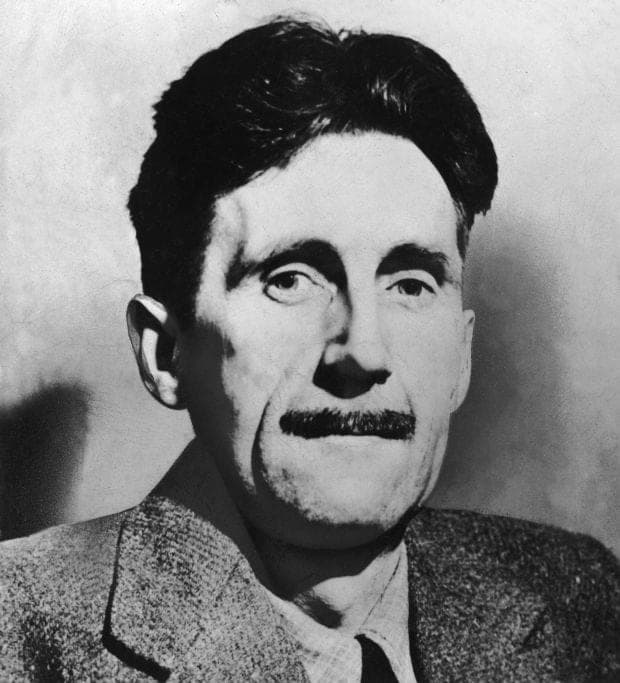George Orwell 1903-1950
George Orwell was the pen name of Eric Blair, a twentieth century writer, equally at home with journalism, essays, novels, literary criticism and social commentary. He was famous in all those areas, but will be particularly remembered for two of his novels, Animal Farm and Nineteen Eighty Four, both among the most significant works of literature of the twentieth century and two of the most influential. Indeed, many of George Orwell’s quotes from his works have become commonly known, and used as new English language phrases.
Three of Orwell’s non-fiction collections are classics of journalism. Down and Out in Paris and London (1933) tells the story of living as a tramp in those two rich cities; The Road to Wigan Pier (1937) is a close observation of the working class in the north of England and Homage to Catalonia (1938) is an account of his activities in the Spanish Civil War.
A keen observer of the trends of his time Orwell forged his two great novels from those observations and, particularly in the case of Nineteen Eighty Four he emerged as a kind of prophet, warning society about where it seemed to be heading. In the novel people have become dehumanised, governed by an unseen administration that controls them with a fast-growing technology. The novel makes the future look bleak. Governments, since the book came out, have often been warned by their critics of bringing the country closer to nineteen eighty four, with the increase of such things as censorship and camera surveillance. The language Orwell used in writing this novel contains many words and phrases which he employed to create the dystopian world of the novel.
Some of the words and phrases he invented have entered into the English language and are used routinely, eg. Big Brother, thought police, Room 101, thoughtcrime, doublethink.
Some other newspeak words are: joycamp (forced labour camp); goodthink (correct thinking); oldthink (thought that disregards the revolution); prolefeed (the endless stream of television propaganda).
Nineteen Eighty-Four has long stood and still stands, as a warning about the threat to democracy by a strong tendency towards authoritarianism by ‘strong man’ leaders. Indeed, such things as surveillance cameras that intrude on every aspect of life, even in the most advanced democracies, monitoring of emails, interactive television, the mushrooming of obfuscatory language in politics, such as ‘alternative facts,’ ‘fake news,’ etc. are firmly with us and just what Orwell predicted.
Animal Farm is a short novel that depicts the Russian Revolution of 1917 and the beginning of the Stalin era. The story is told using the techniques of allegorical fiction. The characters are animals and different groups of Soviet society are represented by the classes of animals, eg. The proletarians are sheep, the members of the Communist party are pigs, the security police are dogs etc. The novel is written in such a way as to be accessible to everyone and can be read on one level by a child. It is a remarkable book that explores the Revolution in great depth in a short text.
Apart from his linguistic inventiveness in his novels, Orwell’s style when writing essays and journalism is very plain and simple, clear and lucid. He set out rules for that kind of writing that included using short words, fresh metaphors if metaphors are needed, cut out any words that it is possible to cut out, don’t use scientific language or jargon or foreign phrases and don’t use the passive case. Employing those rules in his own writing Orwell produced a very high level of communication. One of his essays, How to kill an Elephant, written in stripped-down prose, for example, conveys immense feeling by the mere shock of the elephant’s death. While working as a policeman in Burma in 1930 Orwell witnessed a hanging and wrote about it in a piece, A Hanging. The reader feels the full horror of it as Orwell describes it in unemotional, factual, unadorned language.
Some writers’style or ideas are so distinct that their names become adjectives to describe those styles or ideas, as in Shakespearean and Miltonian. Orwellian has been added to that list. To describe something as Orwellian is to refer, not just to a kind of writing but a kind of situation in which a population is controlled by misinformation, surveillance, the rewriting of history and the policing of people’s thoughts.
Read more about England’s top writers >>
Read biographies of the 30 greatest writers ever >>





i feel like im gucci mane in 2006